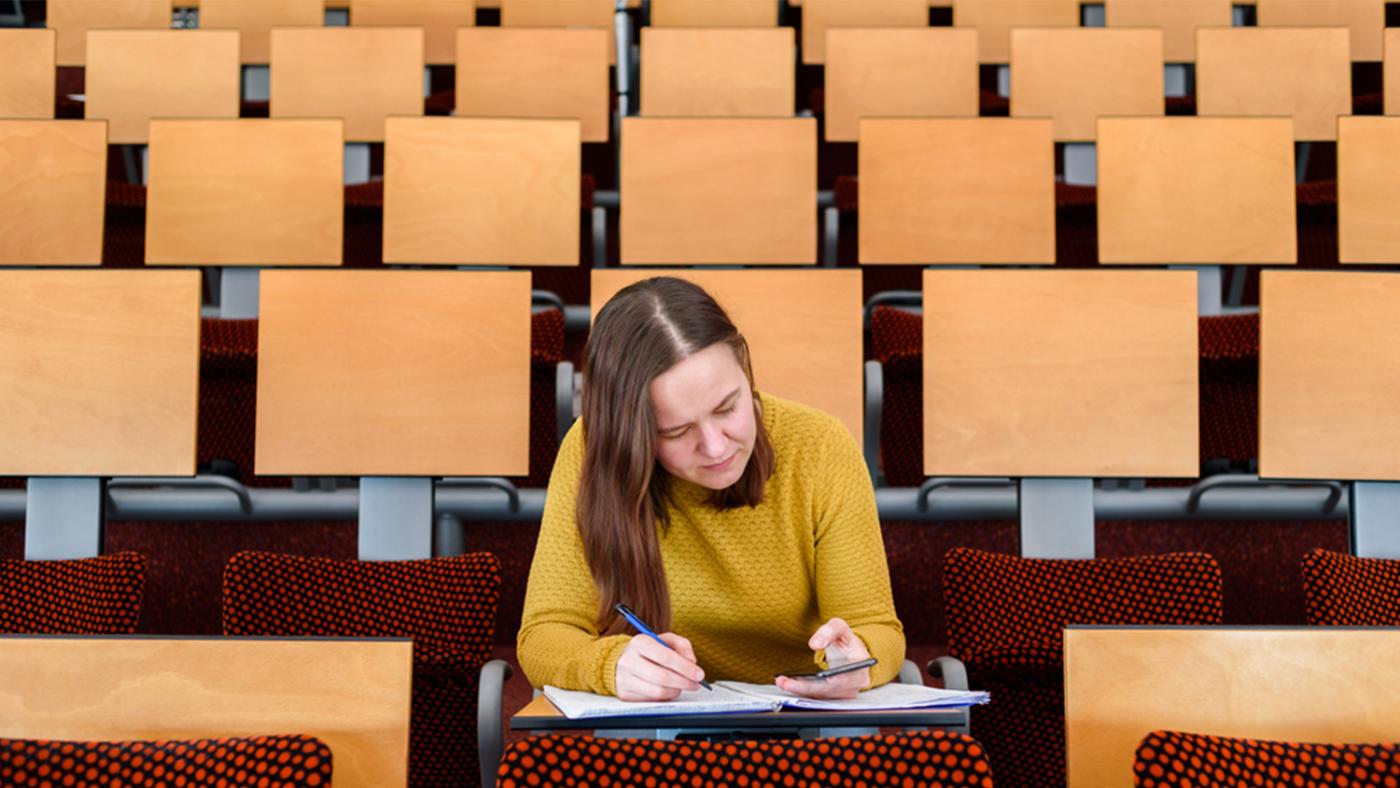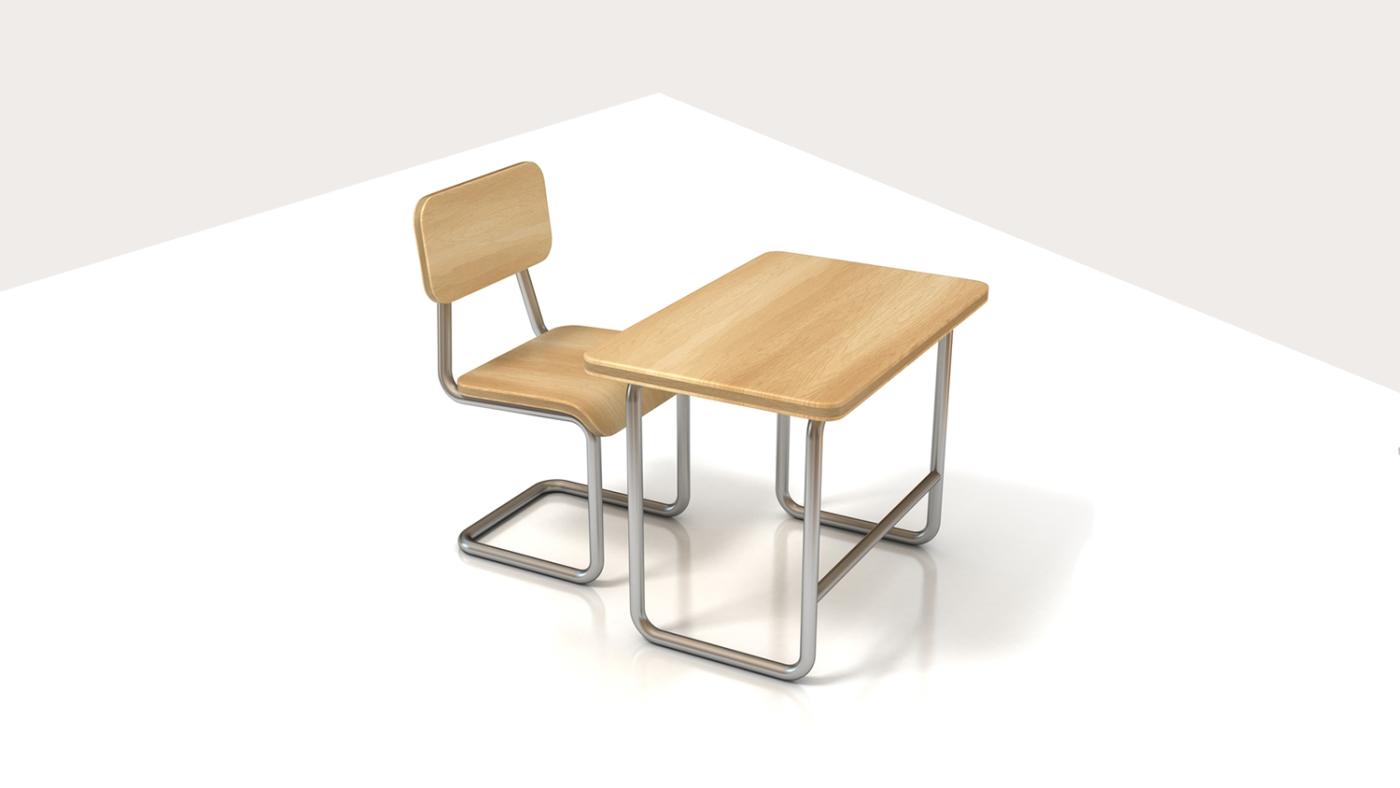Special facilities require attention
Growing student population challenges university to make education inclusive

Students dealing with AD(H)D, Autism Spectrum Disorder, dyslexia, or physical impairments can apply for special accommodations. Approximately 11 percent of Utrecht University students benefit from these services, which is in line with the national average.
The university offers 17 different accommodations, such as a smaller, or quieter room for an exam, reading software or large-print exam papers. The most commonly requested service is “Extended exam time”, with between 60 to 90 percent of eligible students benefiting from it.
Applying for a facility
Students in need of special accommodations can submit their request on Osiris, and study advisers evaluate their applications. If the request meets the necessary criteria, such as valid medical documentation, the approval is granted for the duration of their studies. Luuk Dijkstra, study adviser Humanities, says: "In the past, students had to reapply for each exam. The current system is much more efficient for both students and the university. Students no longer need to explain their situation over and over again, and the application only needs to be reviewed once."
Students who do not meet the initial requirements are invited to meet with a study adviser. Barber van Manen from the Faculty of Science explains that this meeting helps to better understand the student’s needs. "The university has an extensive guidance programme, and granting accommodations is just one part of the support chain. Study advisers are always ready to assist the student, whether it’s offering tailored solutions, relevant training, or temporary provisions."
Self-reliance
Not everything is possible. There are also limits to the support. For example, a student must meet the learning objectives of the program, and sometimes there are practical or logistical obstacles that make support difficult. A practical problem, for example, is the accessibility of some monumental buildings in the city center, says Anne Hamburger, acting Team Leader Student Counseling at the Student, Education & Research department. “It is important that students let us know in good time what they need. Then we can still adjust the location of the education, for example. Especially when needs are reported too late, we can no longer always provide support. The university, unlike secondary school, requires a greater degree of self-reliance – also in indicating needs.”
Word on the floor is that the number of requests seems to have increased. According to Hamburger, this may be due to the sharp rise in the number of students in recent years. "It’s easy to see that 11 percent of 30,000 students creates different logistical demands than 11 percent of 40,000. As student numbers grow, so does the demand for facilities."
Study adviser Dijkstra believes that students are also more aware of the facilities because there’s more focus on studying with a functional impairment. Carmen Jansen from the Faculty of Science doesn’t see an increase in the number of requests. She says: "Since 2016, we started registering facilities in Osiris. It may seem like there’s an increase, but it’s mainly because more faculties are now using digital registration."
Logistical problems
Hamburger highlights that meeting the rising demand can lead to logistical challenges. For example, in the Law programme, the university’s largest faculty, there may be up to 800 students in a course, which requires multiple exam rooms. Head lecturer Viola Bex-Reimert explains: “Each room needs to have subject-specific lecturers available to answer questions, and it can be difficult to staff enough rooms, especially when some students need to take exams alone. Sometimes we simply don't have enough lecturers. At the same time, it has always worked out so far."

Photo: Shutterstock, edited by DUB
Providing extended exam time often creates logistical challenges, according to Dijkstra. “Exam rooms can be booked in 2 or 3-hour timeslots. If a student is granted extra time, this means they have 10 minutes extra for each hour. So, a 3-hour exam might be extended to 3.5 hours for those students, which complicates scheduling and room availability. Scheduling-wise, this is tricky and means that sometimes you must change rooms for that last half-hour extra, which is obviously not ideal. Teachers therefore sometimes choose to make the test a bit shorter, so that it can be taken within 2 or 3 hours even with extra time."

Photo: Shutterstock
Transitie naar inclusief onderwijs
Under the Equal Treatment Act, universities are required to provide every student with the support they need to fully participate in their studies. In 2018, Utrecht University signed the United Nations Declaration of Intent on this issue. The same intentions also apply to primary and secondary education, with more and more students remaining at the higher vocational level or academic level (in Dutch: havo or vwo), who might previously have had to switch to a lower level due to the lack of support. Van Manen says: "Some of our students come from special education, and that’s great. This means that they’ve been well supported at every level, and now the job is up to us to give them the right support here as well."
According to the various study advisers, a "UU-wide framework for action" is needed. This framework should include how the university must deal with different needs and who would be responsible for this. Although study advisers handle the requests for special facilities, lecturers often still need to know which of their students are entitled to these special facilities, and it varies from faculty to faculty who arranges, for example, a less massive room or reading software.
The Student, Education & Research department is aware of the problems and the need for more general guidelines. “We have been working very hard on this in recent years,” says policy officer Jonathan Koelewijn. “At the moment we have several proposals to tackle things differently. I hope that we can start working on these concretely early next year.” He cannot yet say exactly what these plans are.
Easing pressure on lecturers
Students regularly call on the lecturers with questions about facilities. Dijkstra says: " For lecturers it can be difficult at times, when they are called upon, because they’re under enough work pressure already. That's why it's so important that our students know that they need to contact the study adviser, and that the staff of the Education Secretariat are the ones organising the facilities."
At the Faculty of Law, much is taken care of by other staff, such as those responsible for rostering. Senior lecturer Viola Bex-Reimert says: "The rosters are made long in advance and rooms are often also booked at the same time. The special facilities are allocated by the study advisers, and I take care of the staffing of lecturers during exams. This way, there’s generally no extra pressure on our lecturers."
At the Faculty of Science, they’re also trying to reduce the workload for lecturers. Since this year, a special team has taken on the entire responsibility for exam facilities. Cristel Teusink, project leader “renewed facilities process sciences” says: "Before, lecturers had to do this themselves, which is no mean feat for a course of sometimes hundreds of students. Now, the Facilities team is in charge of getting the data from the system, making sure the rooms and facilities are in order, providing invigilators and informing them. For student, the process is the same, but for the lecturer it makes a big difference: we give them a monitoring role. They can indicate if something’s not right, but they no longer have to actively chase it."
Van Manen says: "One of the biggest threats to the quality of education is excessive teacher workload. It would be a shame if the quality of teaching deteriorates because too much of their time is taken up with arranging facilities for students. This new system benefits both students and teachers."
Associate Professor of Developmental Biology and programme director Inge The is pleased with these changes in her faculty. "Until this year, we did not have full support in exam facilities. We’re very happy that the team is taking so much off our hands, reducing the workload for lecturers." She does still see issues, though. "On occasion, there are students who need ad hoc facilities, such as postponing deadlines, not having to appear on campus or a last-minute exam facility. That remains difficult for the lecturer if they then have to pull those students from the email list every time and email them separately about deadlines, when they have 430 students in the course."

Photos: Shutterstock, illustration by DUB
Academic bottlenecks
In addition, it’s not always clear where the line is drawn when it comes to meeting the programme's attainment targets. Inge The says: "Studying is more than passing exams. Collaborating, discussing, or presenting are important parts of developing academic skills. If you can't do that for whatever reason, it can be difficult to determine whether you meet the attainment targets. And how do you manage group work if one of the students doesn’t have to attend, or doesn’t have to meet the deadline while the other group members have to?"
Above all, she asks for understanding from the student, and support from the organisation. "We do our best to make sure that all students can focus on their studies and that the attainment targets are met. I hope students understand that we’re really going out of our way and that want the best for both student and teacher."
Cristel Teusink also sees some recurring difficulties, such as dealing with no-shows. Students who do not use a facility at the last minute don’t always know that they must cancel the reservation. For example, a special laptop may have been prepared, an exam printed in larger print, or an extra room booked. Teusink says: "We do think this is a waste of the administrative and organisational work involved. We therefore try to communicate well so that students know where and how to cancel their request."
Best practices
Best practices are being shared at various levels. Faculties are talking to each other about innovations in the facilities process, for instance, and there seem to be people everywhere who are taking care of this issue. Teusing: "It’s essential to have dedicated individuals working on these issues, and thankfully, each faculty and each support team has people committed to improving the process. We brainstorm a lot and share the changes we make, keeping in mind the interests of both the student and the teacher."
Van Manen adds: "We are in the middle of the transition to inclusive education and special provisions are part of this. The idea that students would not be able to count on support later in the labour market, and education should therefore not pay too much attention to this, is outdated. The labour market also increasingly wants to take neurodiversity into account. Society is increasingly open to the idea that different people function best in different ways. So, it is valuable for us, the labour market and society to pay attention to this."
Studying Without Limitations
Students with a disability can also contact Studying Without Limitations, a platform to help students with disabilities find their way around the university. The platform is run by students with disabilities for students with disabilities. Studying Without Limitation also shows the facilities available to students with disabilities and how to deal with matters such as living, working and socialising. You can contact the platform by sending an email to unlimitedstuderen@uu.nl